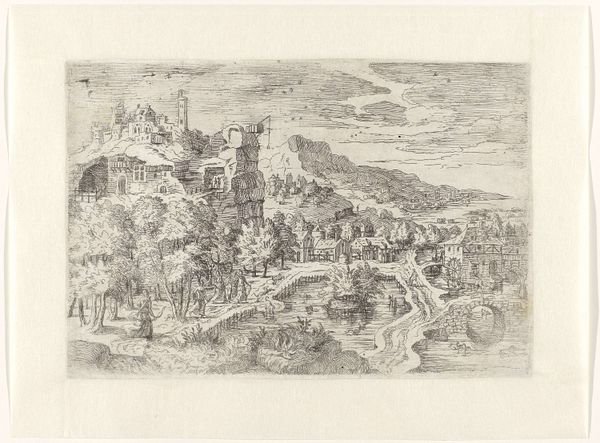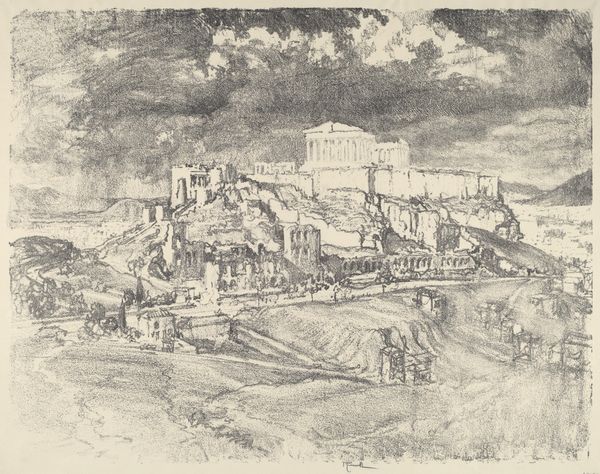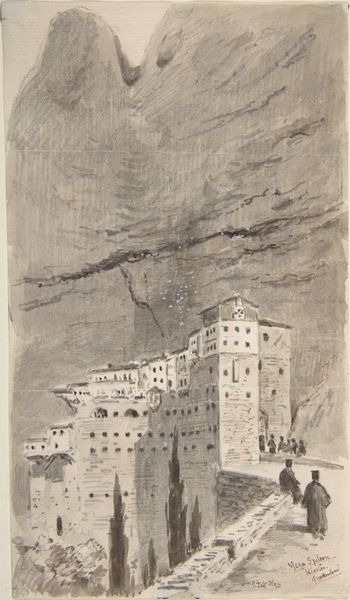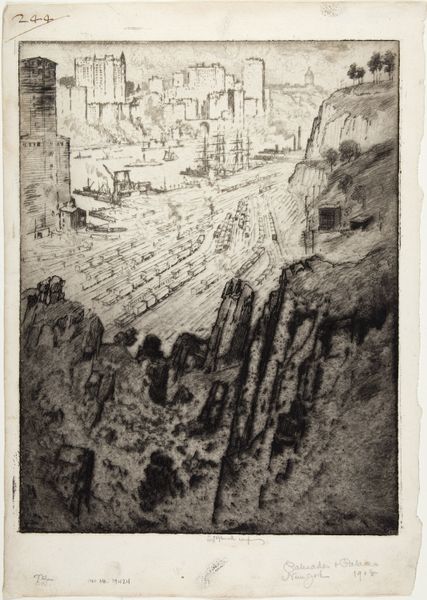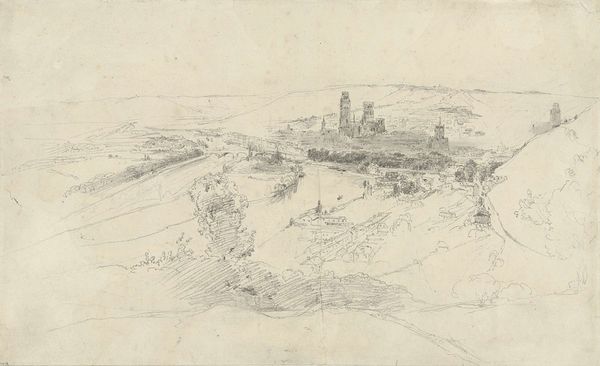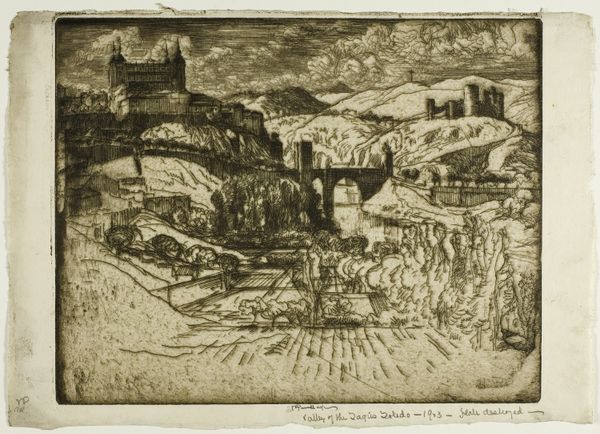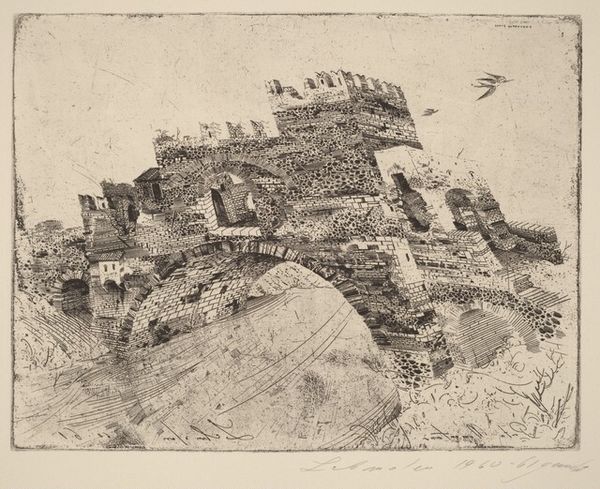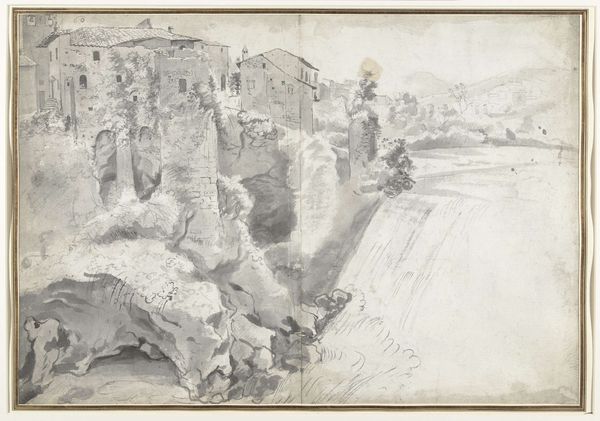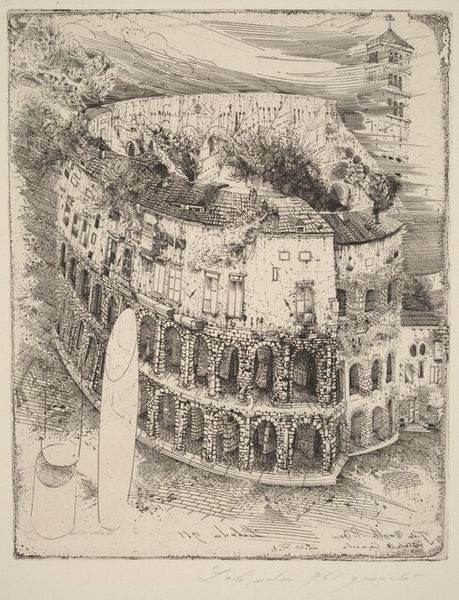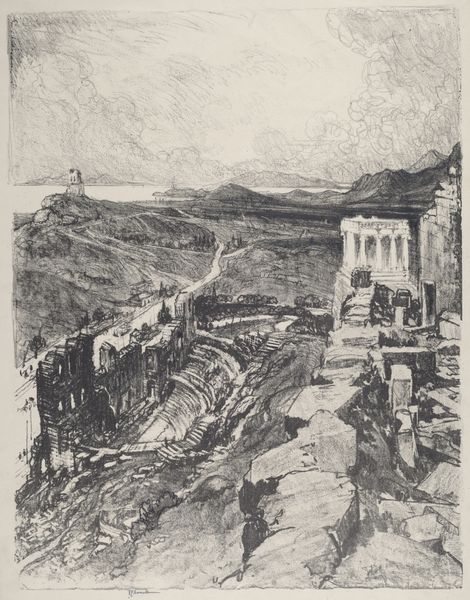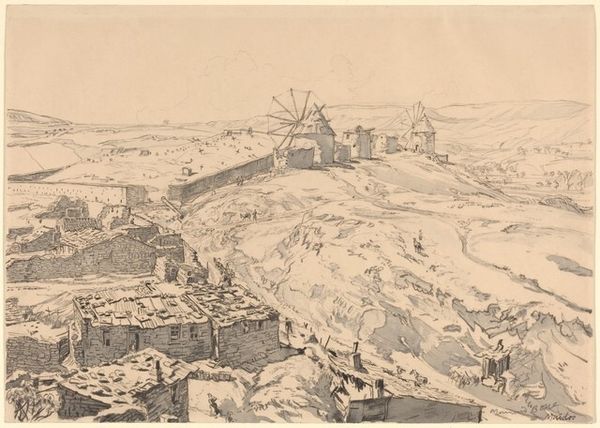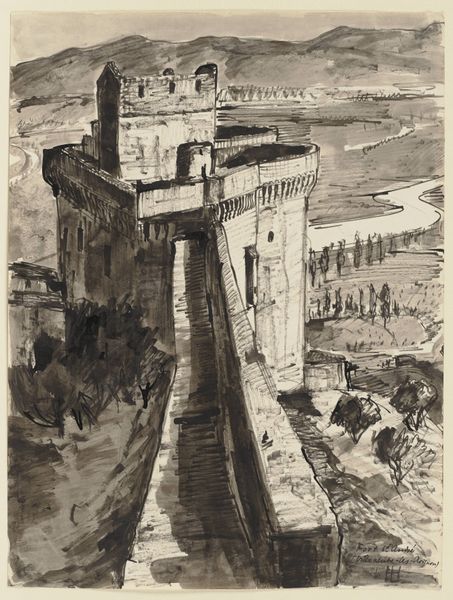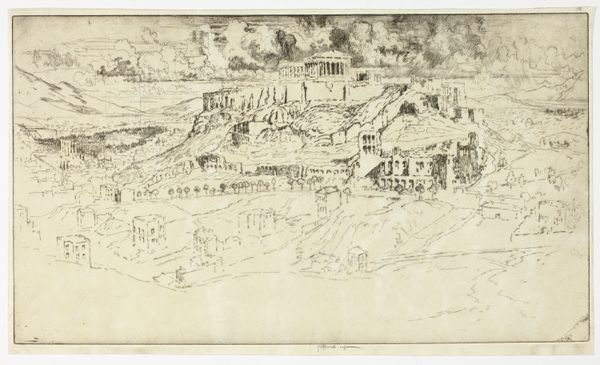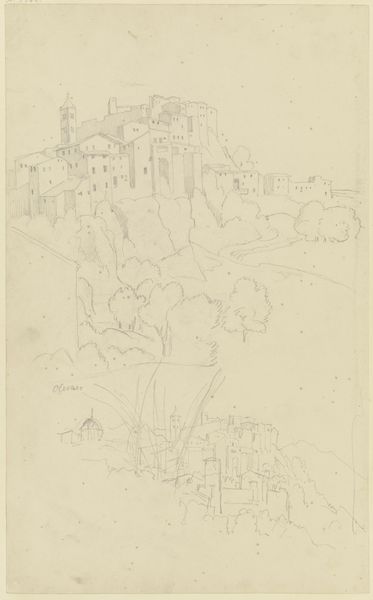
print, etching, intaglio
#
pen and ink
#
landscape illustration sketch
#
mechanical pen drawing
# print
#
pen sketch
#
etching
#
intaglio
#
pencil sketch
#
sketch book
#
landscape
#
personal sketchbook
#
sketchwork
#
geometric
#
pen-ink sketch
#
pen work
#
cityscape
Copyright: National Gallery of Art: CC0 1.0
Curator: Let's consider this intaglio print by Anton Lehmden, "Tiber Island," created between 1960 and 1961. Editor: My initial reaction is of unease, almost a vorticist churning. The hatching creates an overwhelming sense of movement. Curator: Indeed. The dynamism is achieved through his precise technique. Note how the swirling lines both define the Tiber River and create a sense of spatial distortion. Consider, too, the formalist elements. The composition itself divides the island into defined geometric masses; notice how Lehmden balances these masses with the texture and intricate crosshatching. Editor: But there's also something inherently historical here. The subject, Tiber Island, with its ruins and bridges, has always occupied a significant spot in the city’s spatial rhetoric, used as a location to exert imperial powers onto the people of Rome. The vortex, for me, illustrates the sweeping power held in this central hub. It isn’t just aesthetics, but the power play being expressed through imagery. Curator: That socio-political interpretation works. He certainly understood how to exploit the contrast between line and void. See how that plays out not only formally, to articulate volume, but also conceptually, allowing space for interpretation of political intention, or any subtext for that matter. The materiality here--etching, the lines on the plate--that interplay shapes how we read the overall image. Editor: The choice of such a historical landmark is also, I think, pertinent. Consider how prints were and are democratized; the wide production invites open and free consumption, and a political reading of art is enabled. Curator: A powerful confluence of history and aesthetic principles. Editor: Agreed. It compels a reassessment of spatial arrangements and political forces, doesn't it?
Comments
No comments
Be the first to comment and join the conversation on the ultimate creative platform.
